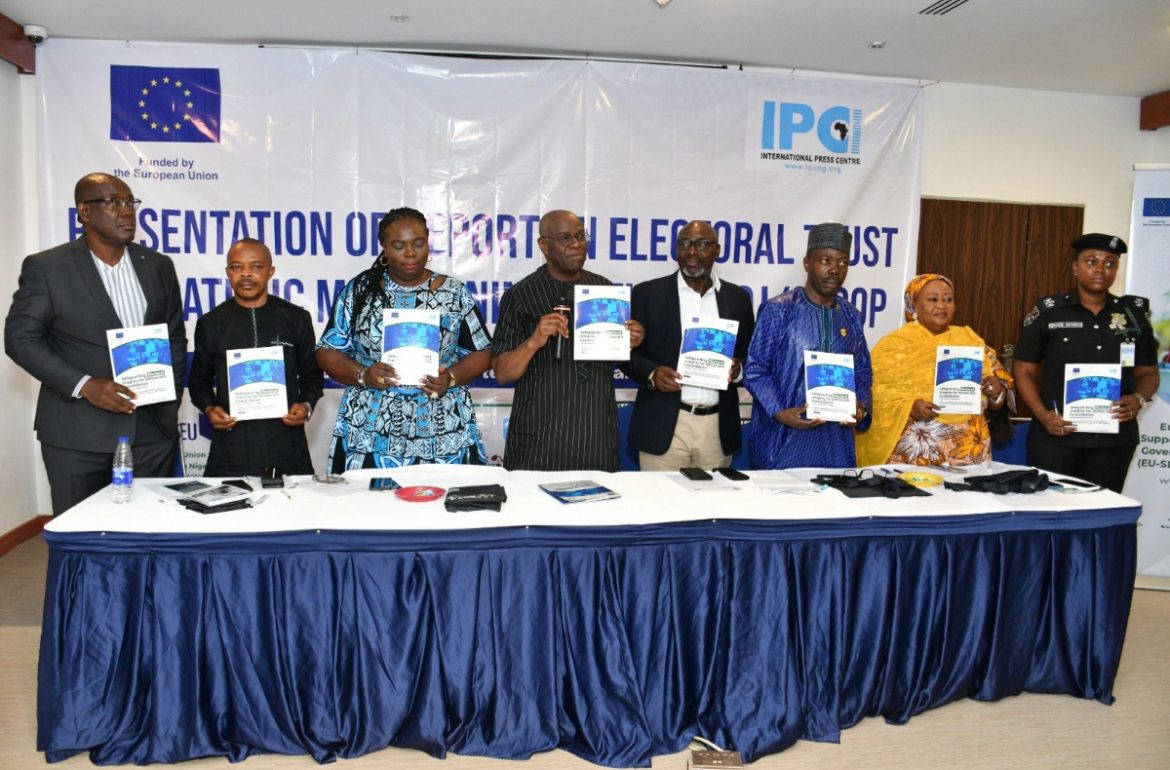By Deborah Coker
The International Press Centre (IPC), on Monday urged stakeholders to“reappraise” and “recommit” to safeguarding electoral integrity,
Mr Lanre Arogundade, Executive Director of the IPC, made the call in his remarks at the presentation of the media-led multi-stakeholder dialogue report on “Rebuilding Electoral Trust” ahead of the 2027 elections.
The report titled “Safeguarding Electoral Integrity for Democratic Consolidation” is an IPC report on the media-led nation-wide dialogue series on Rebuilding trust in Nigeria’s electoral process, institutions and elections.
It represents a synthesis of IPC’s media-led multi-stakeholder dialogues conducted across Nigeria’s six geo-political zones between 2023 and 2025.
The engagements were convened under “Component 4: Support to Media of the European Union (EU) Support to Democratic Governance in Nigeria (EU-SDGN II).
Arogundade noted that the credibility of elections serve as a key indicator of a robust and sustainable democracy.
He said that when elections are deemed credible, it strengthens public confidence that each vote mattered and reaffirmed that governance was truly determined by the will of the people.
He also said that credible elections mattered because they boost citizens involvement in governance, build trust in democratic institutions, legitimise elected officials and lay the groundwork for a stable democracy.
He said in view of this, every stakeholder must therefore reappraise, reform and recommit to integrity for democracy to thrive.
“On the other hand, when elections are perceived as lacking credibility due to irregularities, manipulation or insufficient transparency, public trust is undermined,” he added.
He highlighted the consequences of a deficit in electoral trust to include voter apathy and political disengagement.
Others according to him, were loss of faith in electoral bodies, weakening of public institutions, growing disconnect between the people and those in power as well as lack of inclusive participation and non-involvement of citizens and stakeholders alike.
The IPC executive director described the electoral trust and integrity from 2023 to 2027, as a journey, not just a goal.
“Electoral trust is about moving from widespread skepticism towards renewed confidence in democracy.
“It focuses on the credibility of processes; voter registration, counting, result declaration and dispute resolution and not only outcomes.
“Building trust is a continuous journey that demands transparency, integrity, competence, inclusiveness, accountability and constituency across the electoral cycle,” he said.
He noted that electoral trust was essential, and people must believe that the outcome of elections reflected their choices.
He also described the path from 2023 to 2027 as an ongoing process.
According to Arogundade, 2023 general elections represents a pivotal junction marked by significant progress achieved through careful planning.
“However, certain technical issues led to some erosions of trust in the process. The subsequent discourse highlights that electoral credibility must be treated as a continuous responsibility, rather than an afterthought.
“The approach to the 2027 elections involved more than just preparing for polling day. Establishing and maintaining electoral trust is a major and consistent imperative.
Arogundade disclosed that the IPC media-led nation-wide dialogue forum across geopolitical zones provided opportunities for participants to share perspectives and engage in discussions.
He said that the goal was to build stakeholders consensus on measures to rebuild trust in electoral processes, institutions and elections.
(NAN)

